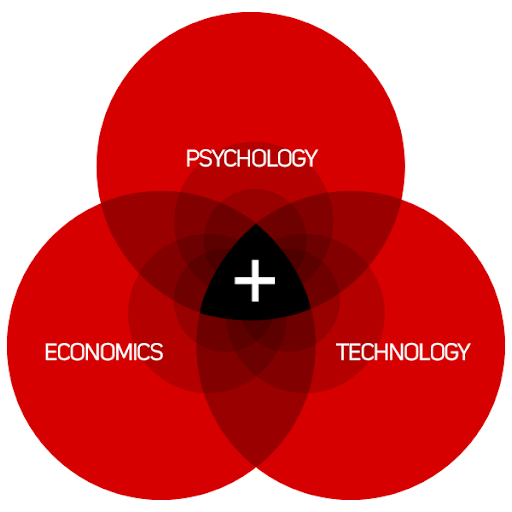Technology is playing a crucial role in increasing workforce participation among people with disabilities. I think to truly harness this potential, organisations must embrace purposeful design thinking and human-centered design to create inclusive workplaces that genuinely support diverse talent. But what happens after hiring? If your organisation has invested significant time and resources in integrating diverse employees, yet they feel unheard and overlooked—if they sense that the mainstream always takes priority—they may silently walk away. When that happens, you're back to square one. How is your organisation ensuring that diverse voices are not just present but truly valued?
Things to consider
In today’s world, business outcomes are influenced by factors such as new technologies, increasing geopolitical uncertainty, value-chain disruptions, energy transition, and climate change. Gender norms also play a significant role in shaping societal roles. In Denmark, it is expected that both men and women contribute to household income, share parental leave equally, and view a model where both parents work in equal proportions as most desirable. I think that promoting an inclusive workplace culture relies on awareness-raising, training, positive reinforcement, and accountability. What do you think?
Finding the right candidates
There is an immense potential in leveraging diversity, equity, and inclusion (DEI) as a competitive advantage. The technological advancement within recruitment is a massive opportunity to access different talent pools and foster a more inclusive environment within HR departments. Approaching candidate evaluation with fresh perspectives not only brings about diverse viewpoints but also highlights the value of varied identities and opinions. Numerous studies emphasise the correlation between DEI and enhanced business performance. For example, Forbes research claims, “Inclusive teams make better business decisions up to 87% of the time.” I think it's crucial to acknowledge that DEI initiatives will only produce meaningful results if they are backed by a truly inclusive organisational culture. And without such a culture, DEI efforts risk being mere lip service. Contact me here or via e-mail when you are ready to upscale and develop your leadership, culture, and people to truly have inclusive behaviours.
What's your take on it?
Throughout my career, I have been fortunate to have worked with some outstanding people and these opportunities has enabled me to work across businesses and functions, allowing me to understand organisational dynamics through people, process and technology. This has been proven to be invaluable as I engage stakeholders and explore ideas and opportunities in line with business priorities.
“Once the game is over, the king and the pawn go back into the same box.”
I have had the pleasure of working for global companies and have acknowledged that humans and knowledge are the two of the most important resources. There are huge financial incentives that keep the status quo locked in place with the “this is just how it is” attitude. I think that all successful people begin with these two beliefs:
1. The future can be better than the present, and
2. I have the power to make it so.
Do you agree? I have seen great results and productivity improvements in organisations leveraging this framework. Contact me via e-mail and let’s have a conversation.
It really matters how we frame things
The circumstances of our lives may matter less to our sense of wellbeing than the sense of control we feel over our lives. It has always baffled me why in western societies we are never given the opportunity to solve problems psychologically. I think that it is because there is an imbalance in the way we treat creative, emotionally driven psychological ideas versus the way we treat rational, numerical, spreadsheet driven ideas.
If you are a creative person, you are forced to share your ideas for approval with people who are far more rational than you. You have to have a budget, cost-benefit analysis, ROI study, etc. This is probably correct and sensible - why does this never apply the other way around? Perhaps, it’s because people who have an existing framework, whether it be economical or engineering, feel as though logic is its own answer. Traditionally, we prioritise mechanistic ideas over psychological ideas.
I think when we solve problems we should look equally at technology, psychology and economics, and if possible, we should base our decisions on the conclusions that sit in the "sweet spot” somewhere in the middle.
Are You Making Your Customers Happy?
Whilst paying attention to what's going on around me and contemplating what is my interpretation of the world? I am not just looking at what offer people are putting out there in terms of content and ideas, but being aware of a problem that needs to be solved. What stops all of us from being observant? Is it the fear of failure or just self-doubt? One should not wait for proof before overcoming fear, one should try anyway!
It is good to ask customers questions but it is better to observe them in action. A more lateral approach to gain insights from customers is to study in detail how they use your type of product or service and to observe what practical problems they have. Data rather than intuition should be the core background to make decisions, so the big question should be, "How to use data to drive better personalisation?" As we look to create a more personalised/customised experience and products, we must ensure that it can scale.
“Data has a clear role to play in developing a superior customer experience— and companies have access to more information on their customers than ever before. Indeed, they are seeing an exponential increase in customer-related data, driven largely by social media, mobile, and e-commerce. But these expanding troves of customer information alone are clearly not driving customer experience improvements—let alone innovation—in the vast majority of organisations.” - Harvard Business Review Analytic Services
The smarter we can analyse data (both quantitative and qualitative) the better we will be at leaving customers feeling wanted, respected and appreciated at every stage of the interaction. Moving from segmenting customers to treating them as individuals is possible by aggregating multiple data sources, being responsive to the previous behaviour of customers and acting in the moment at the right time. We all know customer expectations have accelerated exponentially and this is not slowing down. To compete for the heart and minds of the customer, businesses need to be able to engage meaningfully with people in the channels where they are, not where you want them to be.








